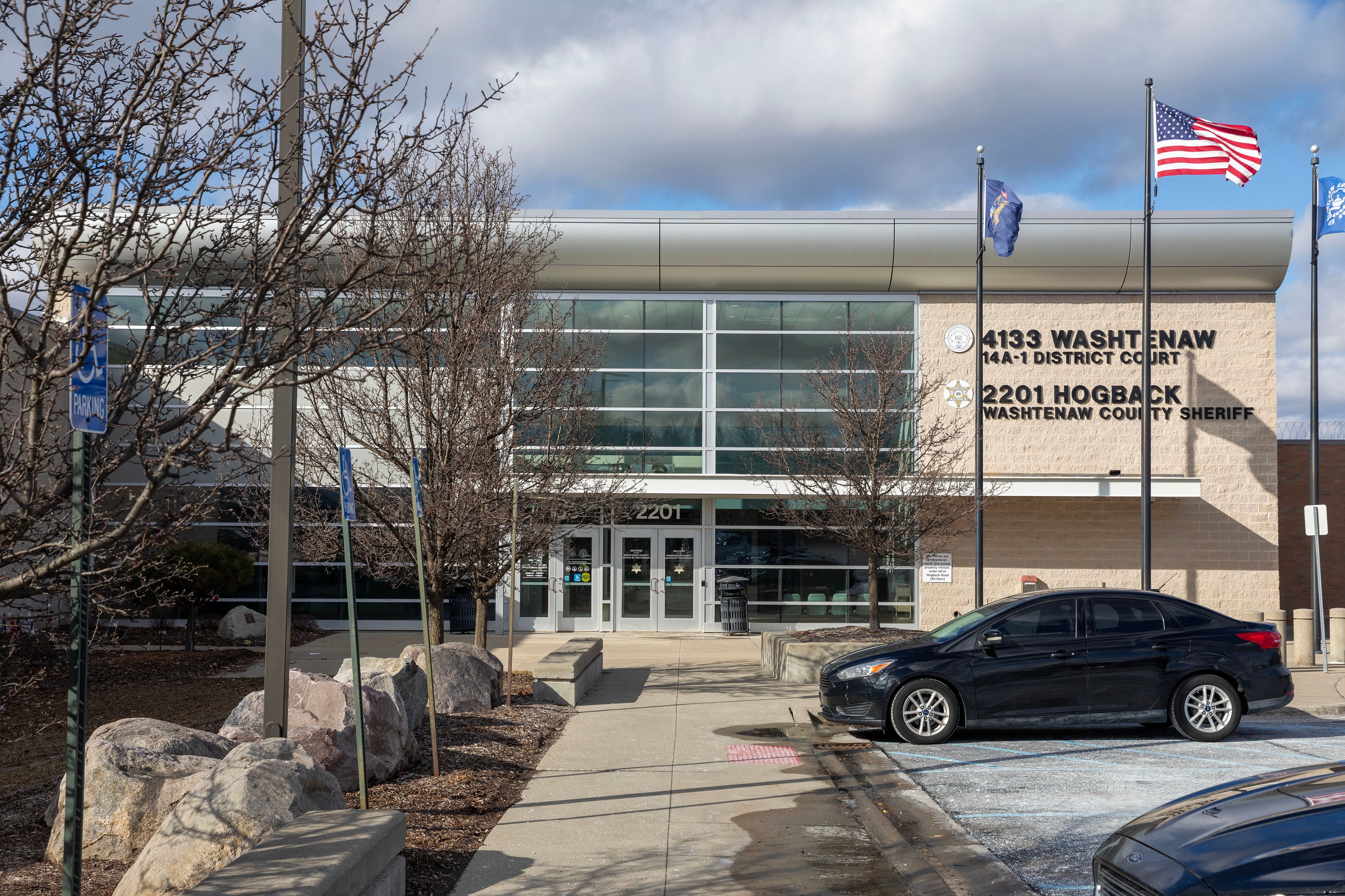Votebeat is a nonprofit news organization reporting on voting access and election administration across the U.S. Sign up for Votebeat Michigan’s free newsletter here.
ANN ARBOR — A University of Michigan student accused of illegally voting in the 2024 election is facing a bench warrant after failing to appear in court for a hearing Thursday.
Haoxiang Gao, 20, a Chinese national, is facing two felony charges that he cast a ballot despite not being eligible and lied on the voter registration form. He was scheduled for a probable-cause hearing but didn’t appear. The hearing had been delayed repeatedly over the past several months.
It’s not clear where Gao is. K. Orlando Simón, Gao’s attorney and a staff member at the University of Michigan’s Student Legal Services, declined to comment Thursday, and university officials did not immediately respond to a request for comment. A voicemail left with the Washtenaw County prosecutor’s office Friday morning was not immediately returned.
The bench warrant, which authorizes an arrest, is an escalation in a case that has highlighted a loophole in the state’s same-day registration system, prompting lawmakers and state officials to propose new solutions to ensure it won’t happen again.
The decision, made by Judge J. Cedric Simpson of District 14A Court, happened after a bench conference with Gao’s lawyer.
If convicted, Gao could face up to nine years in prison and potential deportation.
Records obtained by Votebeat show Gao allegedly cast a ballot at an early voting center at the University of Michigan Museum of Art in Ann Arbor in October. Federal law restricts voting in U.S. elections to citizens, and authorities say Gao falsely claimed citizenship when registering.
In emails sent to local prosecutors and state election officials the day after the incident, Ann Arbor Clerk Jackie Beaudry said Gao admitted what he had done, after initially suggesting that someone else had used a green card to vote.
Cases like Gao’s are exceedingly rare. A statewide review in Michigan identified just 15 other suspected noncitizens who voted in the 2024 general election — roughly 0.00028% of all ballots cast.
That number closely matches the rate seen in other states. A 2024 review in Ohio found fewer than 600 of the 8 million people registered in the state were not citizens. In that instance, 138 of those people had potentially voted in the last year, officials said. A similar 2024 review in Georgia found that 20 of the more than 8.2 million people registered to vote there aren’t U.S. citizens. Only nine of those 20 had voted in previous elections, state officials said.
Michigan Republicans have seized on Gao’s case to call for stricter voting laws. Rep. Bryan Posthumus, a Republican from Rockford, introduced a potential constitutional amendment that would require new voters to prove their citizenship when registering in addition to requiring the state to run continual citizenship checks for voters already on the rolls.
Critics call the proposal a disproportionate response that could disenfranchise eligible voters, particularly those who may struggle to obtain documentation.
Supporters of the measure cited Gao’s case during a recent legislative hearing. Rep. Jay DeBoyer, a Republican from Clay Township, argued that “common sense election provisions” like citizenship checks would have prevented the incident.
Last week, members of the Board of State Canvassers unanimously approved language for the Committee to Protect Voters’ Rights to gather signatures to get a nearly identical measure on the ballot through the petition process. The group, which has historically worked against ballot issues focused on the expansion of voting rights, has 180 days to gather nearly 450,000 valid signatures from registered voters around the state to get the proposal on the 2026 ballot.
Democrats have suggested they would introduce legislation that would stop noncitizen voting without requiring broad citizenship checks. Secretary of State Jocelyn Benson, who is running for Governor, said she would spearhead those efforts, but specifics of a plan have yet to be introduced.
Gao’s next hearing has not yet been scheduled, according to court records.
Hayley Harding is a reporter for Votebeat based in Michigan. Contact Hayley at hharding@votebeat.org.






